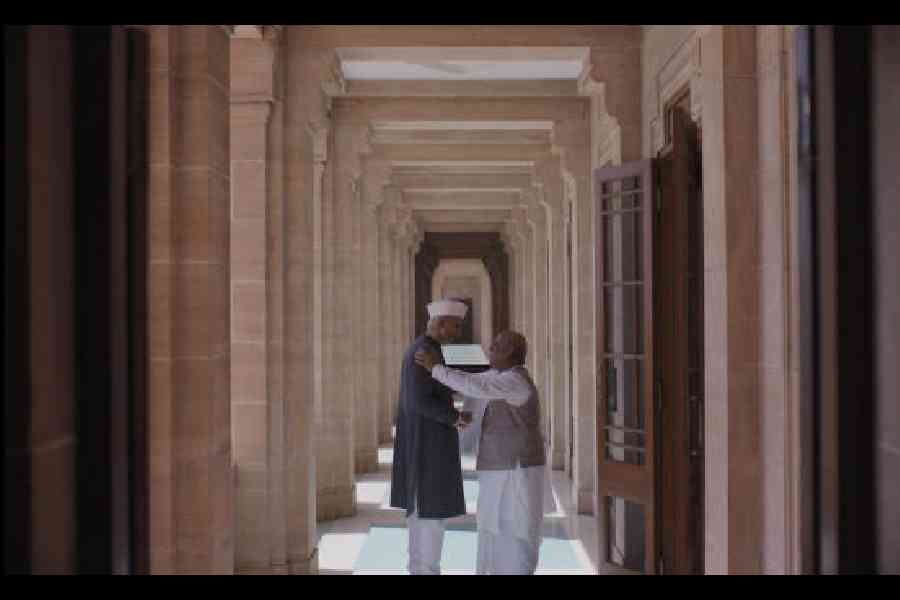At the stroke of the midnight hour, when the world sleeps, India will awake to life and freedom”. This momentous line from Jawaharlal Nehru’s Tryst with Destiny speech, delivered on the eve of India’s Independence on August 15, 1947, remains etched in the annals of history. What also remains an indelible part of our country’s birth into freedom after 200 years of colonial rule is the bloodied, agonising, gut-wrenching division of one nation into two.
Screens both big and small have long explored India’s tenuous path to gaining freedom. Whether it is the stories of India’s bravehearts who prioritised the dream of a free India before their own lives, or biopics of the leaders and visionaries of the time.
What has largely remained unexplored is what transpired behind closed doors in the months leading up to the country arriving at the midnight hour of August 15, 77 years ago. It woke up to freedom not as one nation but as two, Hindustan’s borders being divided into India and Pakistan, demarcated on the basis of religion and, more tragically, hatred and violence.
Freedom at Midnight, a seven-episode series now streaming on SonyLIV, takes a deep-dive into the political pow-wow, personal vendetta, dramatic intrigue, hushed whispers, bloated egos and loud demands that preceded India’s road to freedom.
Creator-director Nikkhil Advani derives his source material from Freedom at Midnight, the 1975 book by Dominique Lapierre and Larry Collins, and transforms one of the most tumultuous chapters in the nation’s history into a high-stakes drama.
Unfolding in the year leading up to August 1947, Freedom at Midnight shows a nation on the verge of gaining freedom, but the men entrusted with ensuring a smooth transfer of power have very little to rejoice. Even as the Indian National Congress — led by stalwarts like Mahatma Gandhi, Jawaharlal Nehru and Sardar Vallabhbhai Patel — look to rebuild a nation maimed by the British, the All-India Muslim League, spearheaded by Muhammad Ali Jinnah — is hellbent on breaking away and building a Muslim state in the form of Pakistan. Advani — aided by a team of six writers — takes what is already fertile material and fashions it into a story which has a ticking-clock feel to it.
The feverish and hushed meetings of each party are contrasted with the violence that is boiling outside. Noakhali in West Bengal bears the early brunt of it as does Punjab. The series, a trifle slow in the first four episodes and shifting into higher gear in its last three, shows the contrasting ideologies and attitudes between the three leaders at the fore of the Congress. Gandhi was vehemently against Partition and had famously said: “If the Congress wishes to accept Partition, it will be over my dead body.” Nehru was the idealist, a follower of Gandhi, who is accused at least twice in the series of being locked up in his “sheeshmahal” aka echo chamber. Patel, the most practical of the three, had his eyes on the larger picture, favouring Partition and looking at it as a necessity, akin to saving a life by amputating an arm. The differing points of view in the Congress camp are juxtaposed with the bitter stubbornness among Jinnah and his followers, determined to obtain Pakistan at any cost. The British are represented by Lord Mountbatten, the last Viceroy of India, and his wife Edwina playing a pivotal (and quite often helpless) role in brokering peace between the warring factions.
Advani, aided by Shweta Venkat’s crisp editing, especially in the penultimate episodes, and the evocative frames by Malay Prakash, crafts a watch that lives up to its logline: ‘The history you may not know... the history you should know.’ The series does an adept job in striking the tricky balance between historical accuracy and an engaging, sometimes entertaining narrative.
Freedom at Midnight also scores a home run with its cast. Gandhi’s characterisation is largely unidimensional but Chirag Vohra is stellar in the part. So is Arif Zakaria as Jinnah. Sidhant Gupta as Nehru, shown as a man both in his 20s and his 50s, is a case of inspired casting but the actor who made us sit up in Jubilee delivers a noteworthy act here too. Nehru’s otherwise controversial equation with Edwina (Cordelia Bugeja) is depicted as one of friendship and empathy here. The pick of the lot is Rajendra Chawla as Sardar Patel, a performance that not only lifts the show but also shows us a lot of the man who skillfully combined patriotism with pragmatism.
Freedom at Midnight caresses the tip of what is an important time in the history of a young India. Season 2, which is well on its way, will perhaps shed light on the cost of the freedom that divided a nation and whose repercussions can be felt even today. More than ever.











